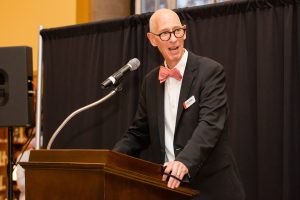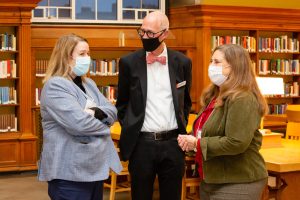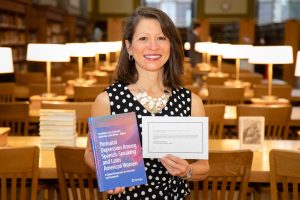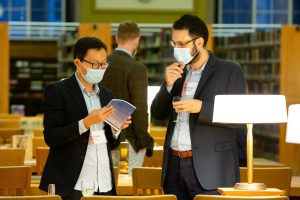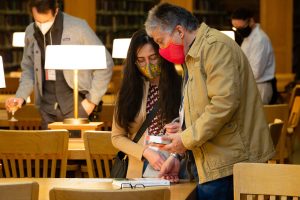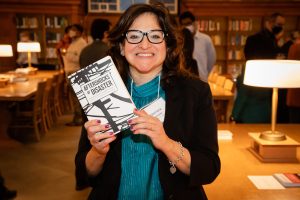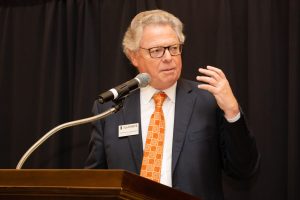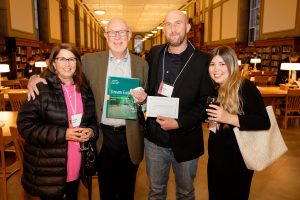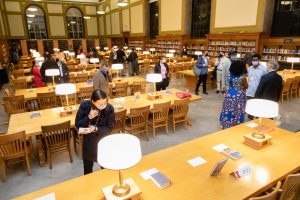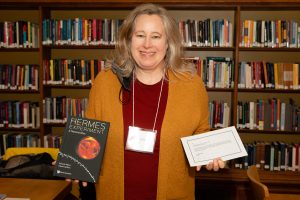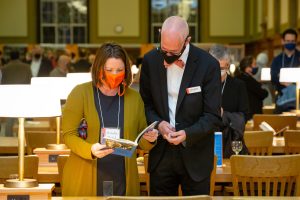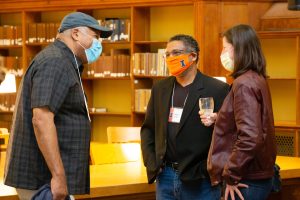Brian Allan (Entomology)
Stream Ecology: Structure and Function of Running Waters by J. David Allan
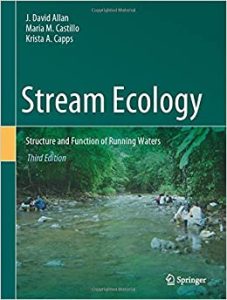
This comprehensive text on stream ecology was authored by my father, who instilled in me a love for nature and guided my entire career as an ecologist. I am beyond fortunate to have had from an early age such enthusiastic mentoring and to have followed in his professional footsteps.
Matt Allender (Veterinary Clinical Medicine)
Giraffes Can’t Dance by Giles Andreae
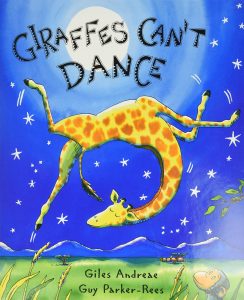
A children’s book I would read to my son that has a positive message about inclusion and diversity and overcoming stereotypical behaviors. Additionally, as a zoo veterinarian that treats giraffes, it makes a personal connection.
Sarah Allison (Veterinary Clinical Medicine and Division of Animal Resources)
Let the Lions Roar! The Evolution of the Brookfield Zoo by Andrea Friederici Ross
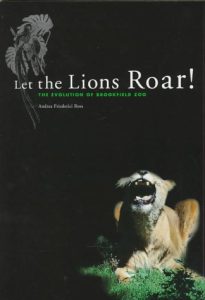
I have a deep fondness for the Brookfield Zoo. I spent many happy days of my childhood visiting there, which inspired my curiosity about animals and the natural world. To this day, I feel a sense of awe whenever I visit.
Jenny Amos (Bioengineering)
Biodesign: The Process of Innovating Medical Technologies by Paul G. Yock
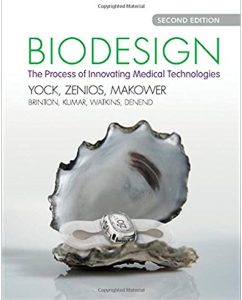
Biodesign was the first framework that took the process of designing medical devices from needs identification to sustainable post-market design. This book shaped my own process in medical innovation projects and revolutionized the way that we train bioengineers in our programs.
Gopesh Anand (Business Administration)
Economic Foundations of Strategy by Joseph T. Mahoney
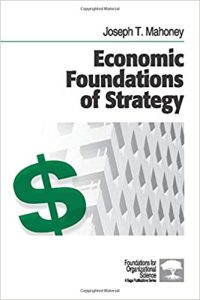
This book on theories applied in Business is exemplary in the way it connects different perspectives while describing the differences among them.
Phillip Ansell (Aerospace Engineering)
Baby Loves Aerospace Engineering! by Ruth Spiro
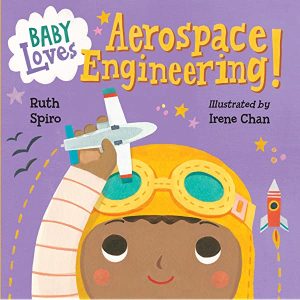
The aerospace engineering field is one with seemingly limitless inspiration. When she was a baby, this book is one I read to my daughter countless times as a way to express the ways the study of aerodynamics has inspired me.
William Barley (Communication)
Cognition in the Wild by Edwin Hutchins
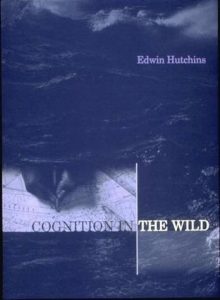
My father gave me this book as I headed off to undergrad at UCSD. Reading it inspired me to switch majors to cognitive science and sparked my interest in becoming a researcher. Hutchins’ perspectives on distributed cognition made me curious about the complex ways that people work together to accomplish difficult tasks.
John Levi Barnard (Comparative and World Literature)
John Dryden and His World by John Anderson Winn
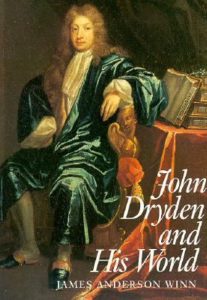
“Thus all things are but altered, nothing dies, And here and there the unbodied spirit flies…” In memory of James Anderson Winn, a mentor and a friend.
Christina Bashford (School of Music)
Signs for Lost Children by Sarah Moss
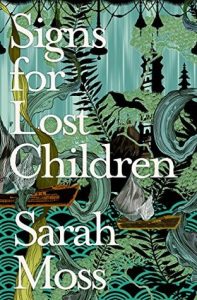
This novel—a gift from an old schoolfriend—stayed with me long after I read it, because it’s set in Falmouth, Cornwall (where we grew up), and because it interrogates the struggles of a late-Victorian woman doctor, a topic that resonates with my own work on Victorian women violinists.
Anustup Basu (English)
Three Essays on the Mahabharata by Sibaji Bandyopadhyay
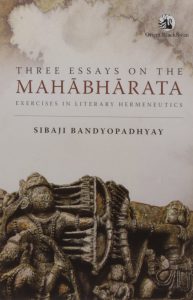
It is a pathbreaking study on the Indian epic Mahabharata that ties the grand story to the modern Indian political and social imaginaries. It must be read by anyone who wants to understand South Asia.
Richard Benton (Labor and Employment Relations)
The Challenger Launch Decision: Risky Technology, Culture, and Deviance at NASA by Diane Vaughan
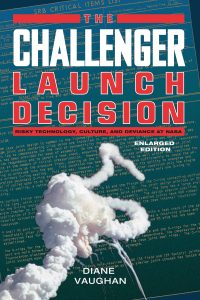
This book made me want to study organizations. Vaughan shows how organizational culture and normalized routines can outweigh and overwhelm individuals’ good intentions. Organizational outcomes, including catastrophic outcomes, are less the result of individuals’ motivations but are more often the result of mundane organizational structures and complexity.
Clara Bosak-Schroeder (Classics)
The Edges of the Earth in Ancient Thought by James Romm
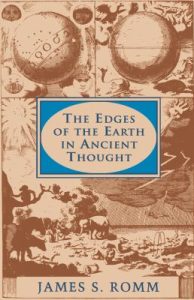
I’ve often thought of my tenure book as a coda to Romm’s work on the Greek and Roman geographic imagination. He showed me that my fascination with “weird” texts about fantastic places and peoples could become a scholarly contribution. And that short books can have a real impact!
Merle Bowen (African American Studies)
Black Gold: The Mozambican Miner, Proletarian, and Peasant by Ruth First
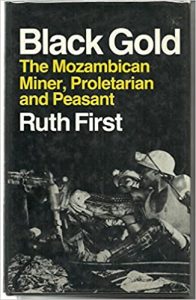
Ruth First’s seminal work on Mozambican migrant labor to the South African mines stimulated my research interests in land, labor, and livelihoods in Africa and the African Diaspora. It has shaped my scholarly thinking, research methodologies, and research analyses. Her scholar-activism continues to inspire me.
Matthew Braun (College of Law)
The Great Society Subway by Zachary M. Schrag
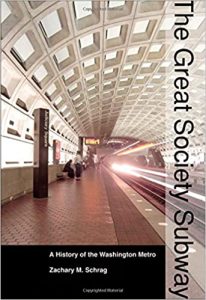
For the first nine years of my career, the Washington Metro was central to my life. It was how I commuted to work, met up with friends, and explored one of the most engaging cities in the world. This book details the engineering, political, and societal achievement that the Metro was and continues to be.
Daniel Briley (Psychology)
The Genetic Lottery: Why DNA Matters for Social Equity by K. Paige Harden
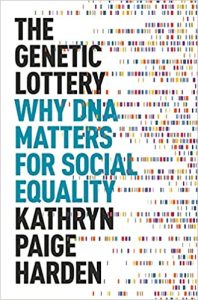
Few books have been as exciting to receive. I am proud to contribute a book from my former co-adviser, a book which integrates so many important streams of research, philosophy, and social progress.
Meghan Burke (Special Education)
Good Night, Gorilla by Peggy Rathmann
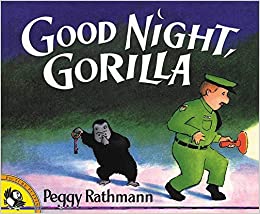
Good night, Gorilla was the first book we read to my son. The book reminds me that storytelling and communication is possible without words or written text.
Olivia Campos Coiado (Biomedical and Translational Sciences)
The Hour of the Star (A Hora da Estrela) by Clarice Lispector
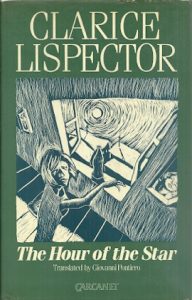
I selected this book because it provides a realistic representation of a poor Brazilian woman migrant from the northeast struggling to survive in the big city. It’s a beautiful narrative that discusses language on a philosophical level, it is also sociological, in representing class conflicts and the poverty in Brazil.
Carlos Carrillo (School of Music)
Indigena: For Large Chamber Ensemble by Tania Leon
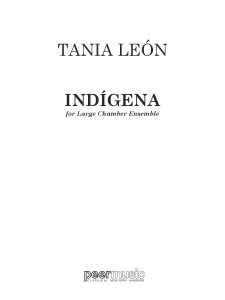
Tania León was my first composition teacher. Her presence has guided me up to this moment.
Julian Catchen (Evolution, Ecology, and Behavior)
Beat the Heart Attack Gene by Bradley Bale and Amy Doneen
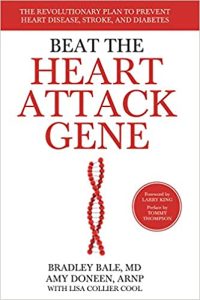
I had a heart attack in my third year at Illinois, two weeks before I turned 38. After several hospitalizations left me in despair, this book, recommended by an internist in the Emergency Room, gave me a path to follow and hope, which eventually turned into recovery.
Jefferson Chan (Chemistry)
The Jade Peony by Wayson Choy
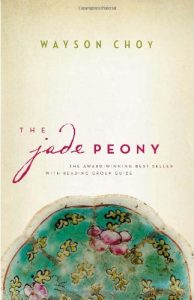
My grandmother (Poh-Poh in Cantonese) devoted her life to caring for me. It would be hard to imagine how I would have turned out without her. Regardless of the situation, she would always have my back. I selected The Jade Peony because it reminds me of my grandmother and how much I love her.
Karthekeyan Chandrasekaran (Industrial and Enterprise Systems Engineering)
Combinatorial Optimization: Polyhedra and Efficiency by Alexander Schrijver
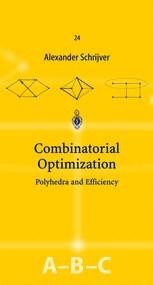
I came across this book during my formative years as a PhD student. The writing style is concise yet rigorous which I hope to imbibe in my own writing. The book has been inspirational and it continues to influence my taste in research.
Marie Channell (Speech and Hearing Science)
More Alike Than Different: My Life with Down Syndrome by David Egan
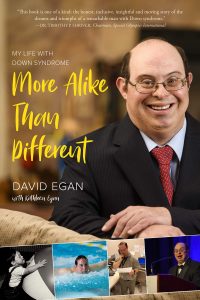
This book was written by a self-advocate who has Down syndrome. It represents the fundamental need for inclusion of individuals with intellectual and developmental disabilities in all aspects of our communities, which is the driving force behind my work.
Yuting Chen (Electrical and Computer Engineering)
Tuesdays with Morrie by Mitch Alborn
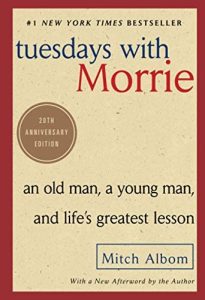
This is one of the most beautiful stories of a teacher and a student. It always brings up memories of many great teachers and mentors I’ve had and serves as a constant reminder that teaching is a privilege because teachers change lives.
Qian Chen (Materials Science and Engineering)
Petit Point: A Candid Portrait on the Aberrations of Science by Pierre-Gilles de Gennes
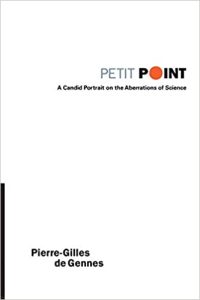
My PhD advisor Steve Granick sent me this book as my graduation gift. It casts a cold eye on various aberrations of scientific careers and inspires me to pursue my own career trajectory appreciating the raw beauty and chaos of science.
Catherine Christian-Hinman (Molecular and Integrative Physiology)
A Mind Unraveled: A True Story of Disease, Love, and Triumph by Kurt Eichenwald
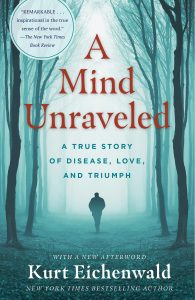
My laboratory’s research is focused on epilepsy. This beautifully written memoir describes the journey of a man with epilepsy who began experiencing seizures as a teenager and the obstacles he faced in obtaining appropriate medical care, pursuing a college education, and establishing a successful career as an investigative journalist.
Joseph Cohen (Psychology)
Wherever You Are My Love Will Find You by Nancy Tillman
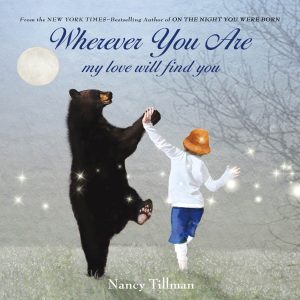
No manuscript nor textbook was, or will be, as important as the texts I read to my kids as we rocked together at night. Thank you to Amy, Harrison, Jameson, Rosie, Mom and Dad, for your support, distraction, wisdom, and love during this process. “There’s no place, not one, that my love can’t find you.”
Kit Condill (University Library)
Literaturnoe I nauchnoe nasledie Abusufiana Akaeva: sbornik statei I materialov by G. M. R Orazaev
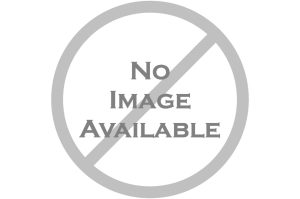
You could say that this book started it all as far as my research was concerned. It is a 1992 celebration of the life and works of Abusufian Akaev (1872-1931), an Islamic scholar from Dagestan (in extreme southern Russia) who (along with his contemporaries) has been almost entirely ignored in Euro-Atlantic scholarship on the region.
Ryan Dilger (Animal Sciences)
Bioavailability of Nutrients for Animals edited by Clarence B. Ammerman, David H. Baker, and Austin J. Lewis
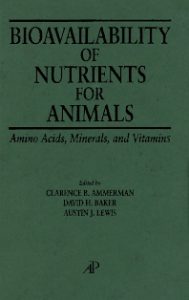
With contributions by three of the most influential swine nutrition experts of all times, including my late Ph.D. advisor, Dr. David, H. Baker, this reference is a staple for generations of scientists.
Michael Donohoe (Accountancy)
St. John Off the Beaten Track by Gerald Singer
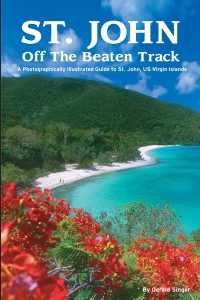
St. John, USVI, affectionately known as Love City, is my longtime Caribbean sanctuary. This book deftly highlights the small island’s natural wonder, rich cultural history, and beautiful vibes.
Alison Dunn (Mechanical Science and Engineering)
The Most Magnificent Thing by Ashley Spires
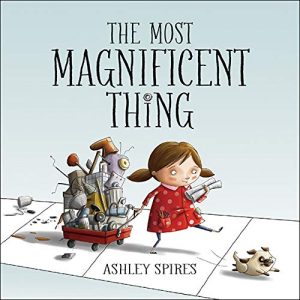
This book shows a girl going through the process of creating a real, useful, object out of found parts by iterating, thinking, tinkering, and working through frustrations. And in the end, she finds joy in her creation. This is my hope for my own work!
Randy Ewoldt (Mechanical Science and Engineering)
Sapiens: A Brief History of Humankind by Yuval Noah Harari
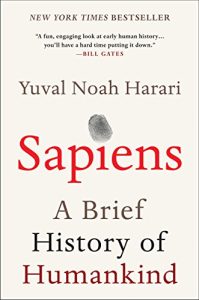
Harari’s one line summary of the Scientific Revolution, “Humankind admits its ignorance and begins to acquire unprecedented power,” is just one example of how this brilliant work explains who we are as a species and how we got to be that way.
Catharine Fairbairn (Psychology)
When You Can’t Believe Your Eyes: Vision Loss and Personal Recovery by Hannah Fairbairn
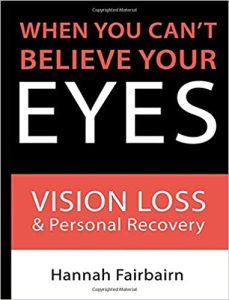
Books written for the visually impaired are extremely difficult to find. This one tackles the most personally devastating yet least spoken about elements of living blind in a sighted world. The author is a legally blind individual who is also an award-winning journalist, chef, longtime vision rehab teacher, and mother to a visually-impaired child (me).
Gloriana Gonzalez Rivera (Curriculum and Instruction)
Aftershocks of Disaster: Puerto Rico Before and After the Storm edited by Yarimar Bonilla and Marisol Lebron
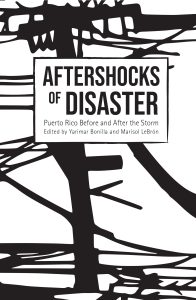
In 2017, Hurricane Maria devastated Puerto Rico, where I am from. For me, it was a call to collaborate with the University of Puerto Rico with the hope of forging a better future through education.
Neha P. Gothe (Kinesiology)
Open: An Autobiography by Andre Agassi and J.R. Moehringer
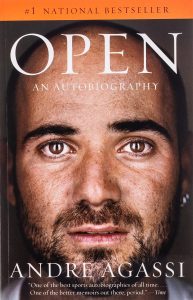
I have admired Agassi as long as I can remember. I played tennis and eventually chose my field – Kinesiology. Open is not about a flawless man/impeccable athlete. You read about the triumphs and disasters of this humanitarian, you learn that winning is never as important as love, friendship, loyalty and giving.
Gary Hecht (Accountancy)
Pattern Recognition by William Gibson

I read Pattern Recognition while working on my dissertation as a Ph.D. student, here at Illinois. It inspires curiosity and a lack of fear where that curiosity takes you.
Julia Hockenmaier (Computer Science)
Copenhagen by Michael Frayn
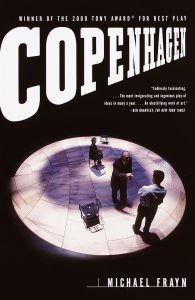
This play remains one of the most compelling and soul-searching investigations of the role of ethics in scientific research, as well as of the student-advisor relationship, even if most of us will hopefully never have to face anything as harrowing as the questions and circumstances faced by Bohr and Heisenberg.
Derek Hoiem (Computer Science)
An Instance of the Fingerpost by Lain Pears
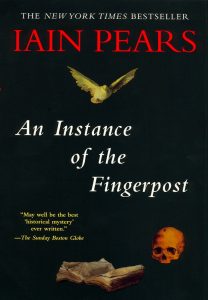
This book features a clever plot observed from multiple perspectives with unreliable narrators, and is an enjoyable read.
Denice Hood (Education Policy, Organization, and Leadership)
The Art of Imperfection: Simple Ways to Make Peace With Yourself by Veronique Vienne
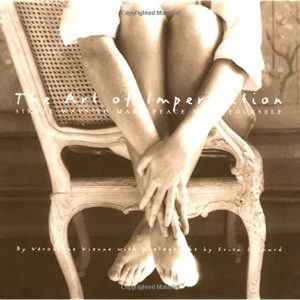
I have been influenced by many books and some of my very best memories involve being lost in a book. I revisit this book periodically when I need a reminder to breathe and notice “perfect moments at imperfect times.”
Wenhao David Huang (Education Policy, Organization, and Leadership)
The Year of the Sheep (Tales from the Chinese Zodiac) by Oliver Chin & Alina Chau
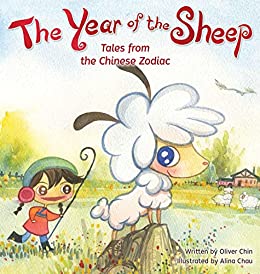
My daughter was born in the Year of the Sheep, which “promoted” me to the most rewarding role as a parent. I use this book to remind myself why we are doing what we are doing as educators and researchers. We are here to create a better reality for future generations.
Pinshane Huang (Materials Science and Engineering)
The Substance of Civilization by Stephen Sass
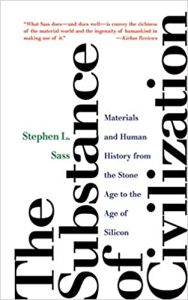
Sass’s book uncovers the many ways the history of humankind has been shaped by materials, and it sparked a wonder for materials science that stays with me today. I was lucky to be given this book as an undergraduate, and I hope it inspires others to use materials science to improve the world around us.
Kai James (Aerospace Engineering)
Superintelligence: Paths, Dangers, Strategies by Nick Bostrom
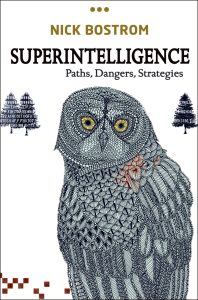
This book is fascinating because it explores big existential questions relating to technology and the future of humanity. It also forced me to think about the long-term ramifications of my own research.
John Tofik Karam (Spanish and Portuguese)
Wind of Land: Two Prose Poems by Eugene Paul Nassar
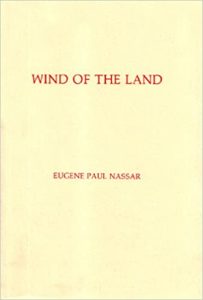
This prose expresses a deep longing for a Middle Eastern migrant sense of belonging in an upstate New York setting. Though revealing “the problem of nostalgia,” as Lisa Suhair Majaj notes, it was for me one of the early instances that I, as a child, saw of a world created in writing and reflection.
Mariana Kersh (Mechanical Science and Engineering)
The Politics of Experience and the Bird of Paradise by RD Laing
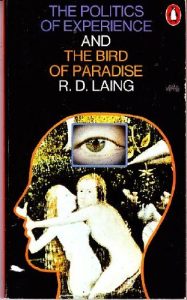
I read this in Prof David Edwards’ government class. An introduction to critical thinking and that there may be no “one truth”, or that whatever it is, it exists through an interpretive lens. We are therefore rewriting our understanding of the world – scientific and otherwise – based on our experiences.
Karen Kramer (Human Development and Family Studies)
Room For Rent by Lea Goldberg
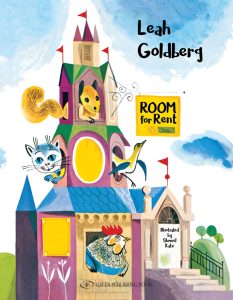
This book is about inclusion. As a child, I didn’t understand it. I still enjoy reading it today and read it to all my kids, both in Hebrew and English.
Sudarshan Krishnan (Architecture)
Form and Forces: Designing Efficient, Expressive Structures by Edward Allen and Waclaw Zalewski
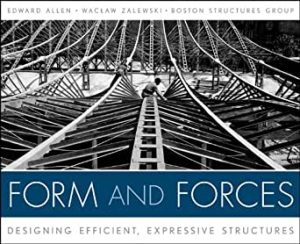
The book raised the importance of innovative thinking and creative design during the formative years of my career. It revives the classic graphical approach of shaping structures through a clear and logical presentation of concepts. The method is not simply an analysis procedure but more importantly a design tool for both architects and structural engineers.
Adam Kruse (Music)
Alexander and the Terrible, Horrible, No Good, Very Bad Day by Judith Viorst
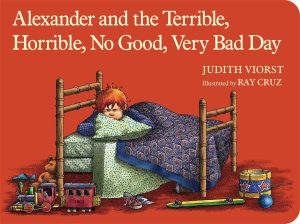
Because some days are like that. Even in Australia.
Aleksander Ksiazkiewicz (Political Science)
Aristotle’s Politics by Aristotle (translation by Carnes Lord)
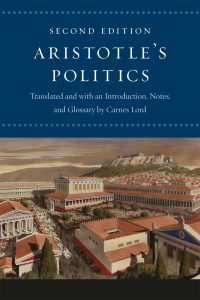
Aristotle’s insight in The Politics that humans are by nature political animals has profoundly shaped me personally, especially my approach to political science. Ultimately, to understand ourselves as humans, we need to acknowledge our embodied, animal nature and explore how it both enables and constrains our ability to do politics.
Sandraluz Lara- Cinisomo (Kinesiology and Community Health)
Perinatal Depression Among Spanish-Speaking and Latin American Women by Sandraluz Lara-Cinisomo and and Katherine Wisner
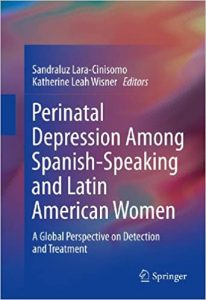
This book is meaningful because it is the first reference source on perinatal mental health among Spanish-Speaking and Latina women. It addresses the complex factors that affect the mental health of Spanish-speaking and Latina women, a growing but understudied population.
Eric Larson (Natural Resources and Environmental Sciences)
Master and Commander by Patrick O’Brien
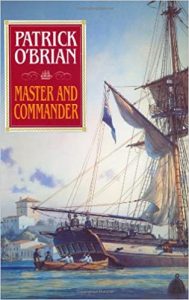
A little escapism in the year I applied for tenure during a pandemic. I didn’t leave my house much, but I did see the world in good company.
Minjoo Larry Lee (Electrical and Computer Engineering)
Exhalation by Ted Chiang
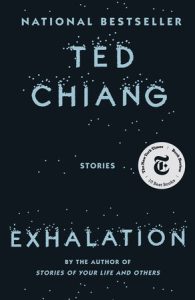
I believe that being able to tell creative stories about complex ideas is a powerful proof of how deeply we have internalized them.
JiHyung Lee (Economics)
Asymptotic Theory for Econometricians by Halbert White
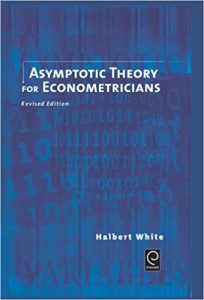
This book helped me to understand core concepts in econometrics during my master and ph.d studies, and I still use it for my current research and teaching.
Daniel Leon (Classics)
Flowers for Algernon by Daniel Keyes
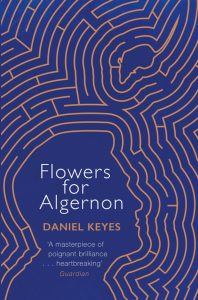
This is one of the first books that inspired me to think seriously about what makes us who we are. That has turned out to be an important question in my scholarship and in my life.
Kirill Levchenko (Electrical and Computer Engineering)
The Trial by Franz Kafka
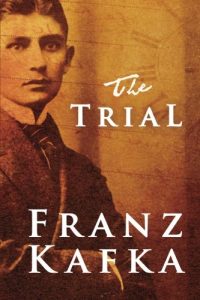
The Trial is surreal and at the same time intimately relatable. It resonated very deeply with me when I first read it.
Nu-Chu Liang (Psychology)
The Little House Books by Laura Ingalls Wilder
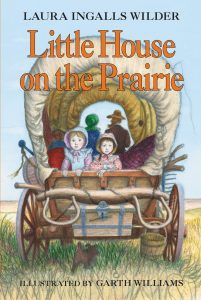
I came to this country as a graduate student in my mid 20s. I spent the first winter break and Christmas with an American family who alleviated my anxiety and nostalgia with enormous kindness. They introduced me to this classic American pioneer adventure. From then, my own exciting adventure in this country continues…
Xin Liu (Astronomy)
The Dark Energy Survey: The Story of a Cosmological Experiment edited by Ofer Lahav, Lucy Calder, Julian Mayers, and Josh Frieman
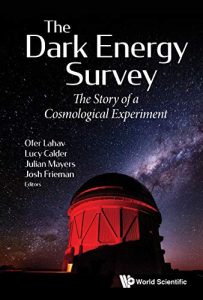
I’m a member of the Dark Energy Survey collaboration and a co-author of a chapter in the book. The Dark Energy Survey has been crucial to launching my research at U of I.
Benjamin Lough (School of Social Work)
Consolations: The Solace, Nourishment and Underlying Meaning of Everyday Words by David Whyte

The title of this book lives up to its promise. This metaphor-heavy dive into everyday words inspires me to pause and reflect on my existential journey and the life-giving potential of my relationships.
Ting Lu (Bioengineering)
A Genetic Switch, Third Edition: Phage Lambda Revisited by Mark Ptashne
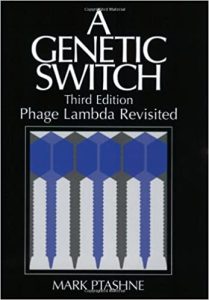
As a physicist by training, I knew little, if not nothing, about gene regulation when I started my graduate study. This book provided me a concise, accessible and insightful introduction to the molecular mechanism of gene regulation, which led me to become a bioengineer eventually.
Rustom Manouchehri-Irani (Finance)
Manufacturing Tail Risk: A Perspective on the Financial Crisis of 2007-2009 by Viral Acharya, Thomas Cooley, Matthew Richardson, and Ingo Walter

I was handed this short little book at some point during my PhD. It completely changed my understanding of the financial panic of 2007. My research interests and career moved in a rather different direction as a consequence.
Benjamin Marx (Economics)
Hard Heads, Soft Hearts: Tough-Minded Economics For a Just Society by Alan Blinder
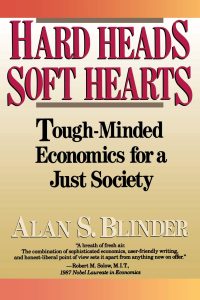
This book gave me one of my first inklings of becoming an economist. An entertaining read for a general audience, it illustrates how to weigh trade-offs inherent in public policy, and its warnings about partisanship now ring truer than ever.
Laura Mattie (Speech and Hearing Science)
Fahrenheit 451 by Ray Bradbury
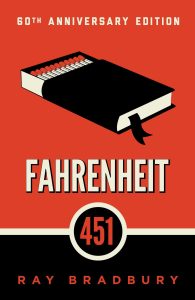
As a 7th grader with dyslexia, this was a difficult read, but I was determined to finish it. This determination in the face of difficult tasks helped me to get where I am. As a researcher, the message of freedom of sharing and making available information for everyone still resonates with me.
Mili Mehrotra (Gies College of Business)
Who Do I Want To Become? by Rumeet Billan
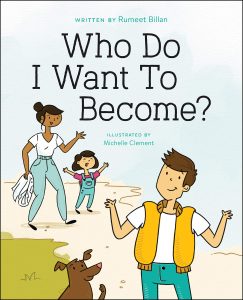
I read this book to my kiddos and love the message: instead of asking kids “what” they want to be, we should ask “who” they want to be when they grow up. The answer to this question is already inside us, and one should not be afraid of being oneself.
Ruby Mendenhall (Sociology and African American Studies)
Mighty Be Our Powers: How Sisterhood, Prayer, and Sex Changed a Nation at War by Lehmah Gbowee
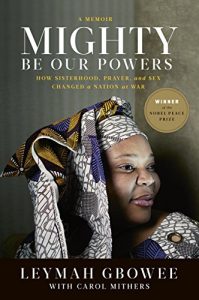
I chose the book Mighty Be Our Powers because it captures the sovereignty and dignity of women who wanted to live and raise their children in peace. I had the pleasure of interviewing Nobel Laureate Leymah Gbowee. She and her book took my breath away and motivated me to push for what may seem impossible.
David Molitor (Finance)
The New Craft of the Cocktail: Everything You Need to Know to Think Like a Master Mixologist, with 500 Recipes by Dale DeGroff and Daniel Krieger
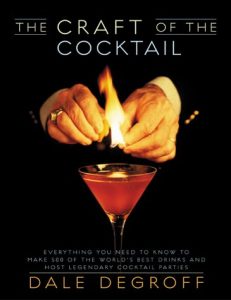
Achieving tenure involves taking early risks on big projects, with any payoffs coming years down the road. It can help to balance that effort with hobbies that give more immediate payoffs. For me, one such hobby was learning to make cocktails. Dale Degroff’s “The Craft of the Cocktail” was the cookbook that got me started.
J. Guen Montgomery (Art and Design)
Piranesi by Susanna Clarke
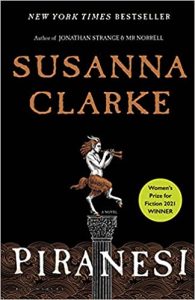
In 2020 we found ourselves, like Piranesi, somewhere new. This world seemed more indifferent to our existence than the one we left. We busied ourselves with routines and life became familiar, if not exactly safe. Unlike Piranesi, who unlocked the House’s door, we’re still vigilant and bewildered, digging through our soggy notes, looking for birds.
Mauro Nobili (History)
Arabic Medieval Inscriptions from the Republic of Mali: Epigraphy, Chronicles, and Songhay-Tuareg History by Paulo de Moraes Farias
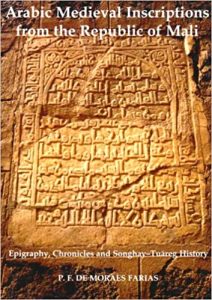
This is a mind-blowing book that turns upside down our understanding of the history of West African history, in particular of local writing practices and of the spread of Islam in the region, and that successfully challenges perceived knowledge on ethnic divides and on the dichotomy between orality and literacy
M. Yanina Pepino (Food Science and Human Nutrition)
Johnathan Livingston Seagull by Richard Bach
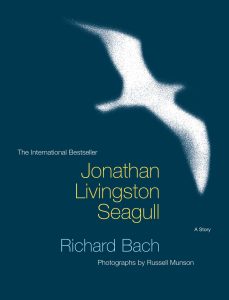
I first read this book when I was 11 or 12 years old, and it had a big influence on me. “Juan Salvador Gaviota” (for its name in Spanish) inspired me to fly and to pursue my dreams, no matter how far away from home they would take me.
Joshua Pollet (Finance)
Inefficient Markets by Andrei Shleifer
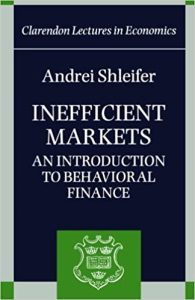
This collection of lectures about Behavioral Finance provided the foundational insights that guided so much of my subsequent research in this area.
Erik Procko (Biochemistry)
Storm Boy by Colin Thiele
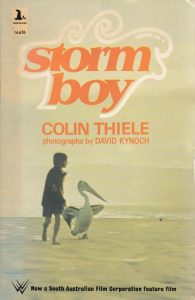
Storm Boy is a beautiful children’s novel that represents my heritage; I spent much of my youth growing up on the white sand beaches of South Australia where the story is set. Among the book’s themes, the conflict between living a simpler life versus the expectations of modern society is one that still resonates.
Alyssa Porok (Political Science)
The Giving Tree by Shel Silverstein
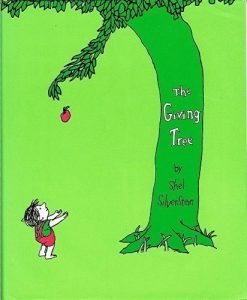
This book is one of my children’s favorites, and each time we read it together, I’m reminded what a perfect metaphor it is for both parenthood and academia. The journey is lonely and depleting at times, but, in the end, fulfilling in so many ways.
Christian Rainwater (Theatre)
Designing and Painting for the Theatre by Lynn Pecktal
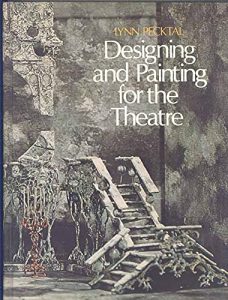
This book is an important historical reference for students. Containing exact recipes and techniques, it details difficult to find information. When I started at UIUC, the in-depth Scenic Painting classes that use that information didn’t exist. My students and I built them over time. This book is a testament to that.
Zoi Rapti (Mathematics)
The Manual, a Philosopher’s Guide to Life by Epictetus
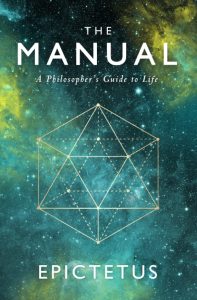
“The Manual” reminds me of Greece and my family. Epictetus lived part of his life and eventually died in Nicopolis, which is close to where I grew up. He taught about how self-restrain and humility leads to inner peace.
Julian Reif (Finance)
Five on a Treasure Island by Enid Blyton
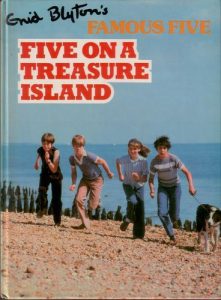
This was the first novel I can recall reading as a child. It launched my lifelong love of reading.
Jason Ridlon (Animal Sciences)
Zen and the Art of Motorcycle Maintenance by Robert M. Pirsig
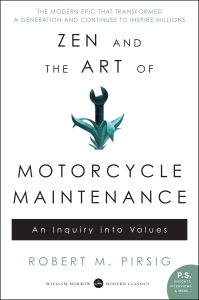
ZAMM is my proverbial “desert island book”. Pirsig’s philosophy of Quality is a practical metaphysics that I use in my everyday life. Areté, excellence in everything one does, is particularly inspiring. I’ve read it countless times, and always look forward to the journey. “Sometimes it’s a little better to travel than to arrive.”
Caroline Riedl (Physics)
The Hermes Experiment: A Personal Story by Richard Milner, Erhard Steffens
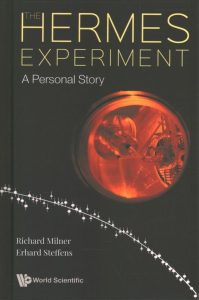
The nuclear-physics experiment HERMES at DESY, Hamburg (Germany) and its people coined my career path in particle physics. Urbana-Champaign was one of the founding institutions in 1989. My memory of the HERMES collaboration is most joyful and this is why I selected this book.
Rachel Roegman (Education Policy, Organization, and Leadership)
From the Stars in the Sky to the Fish in the Sea by Kai Cheng Tom
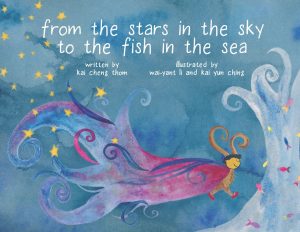
As I continue on my professional journey, reading this book with my children reminds me that we are all in a never-ending process of becoming.
Arkadiy Sakhartov (Business Administration)
Karlson-on-the-Roof by Astrid Lindgren
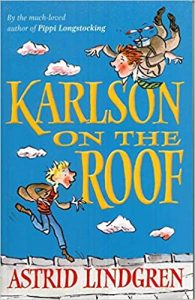
My mom gave me Karlson-on-the-Roof when I was two years old. Initially she read the book to me, but soon I started reading it myself and really enjoyed it. I read the book many times. Besides being interesting, the book affected the development of my imagination and probably my choice to be a theorist.
Kari Sanderson (Law)
Harry Potter and the Order of the Phoenix by J.K. Rowling
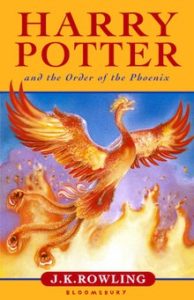
This book spawned one of my key pedagogical tools; I’ve used the Dementor attack in Little Whinging to introduce legal writing concepts to many a class of law students.
Christopher Schmitz (Electrical and Computer Engineering)
Where the Wild Things Are by Maurice Sendak
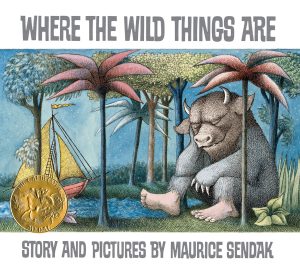
After years of repetition to my four children, I would recite it from memory as my youngest sat sleepy-eyed in the darkness. One day I expect they will read it to their children and, through the chaos, remember the place they are loved “best of all” and they can find “supper waiting” for them.
Diwakar Shukla (Chemical and Biomolecular Engineering)
Understanding Molecular Simulation: From Algorithms to Applications by Daan Frenkel and Berend Smit
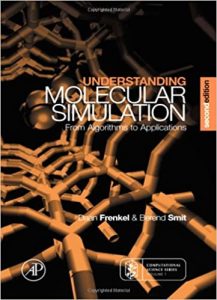
This books holds a special significance for me. In the first year graduate student, my thesis advisor recommended this book to me for the comprehensive coverage of topics and clear explanations of the fundamental principles of molecular simulations. I used this book as a reference throughout PhD and I am a proud owner of a signed copy from Prof. Daan Frenkel. I recommend it strongly to any student interested in understanding Molecular Dynamics simulations.
Sharde’ Smith (Human Development and Family Studies)
Every Little Thing by Bob Marley and Cedella Marley
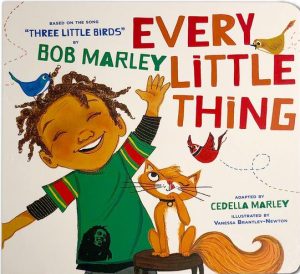
I gave birth to my first son at the beginning of my tenure journey and to my second son at the end. As I read and sing the words to this book at bedtime, it is a reminder to me and them that every little thing would be all right.
Andrew Smith (Bioengineering)
Moby Dick by Herman Melville
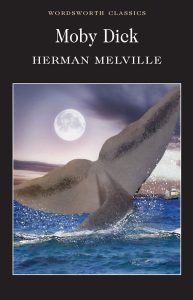
Scientists and engineers use storytelling to capture the attention of an audience and frame the communication of complex concepts. The epic narrative of Moby Dick is infused with sciences, technologies, and business practices of the centuries-old whaling industry. To me, it is the most memorable fusion of educational technical content and drama in literature.
Valeria Sobol (Slavic Languages and Literatures)
Besedy o russkoi kul’ture: byt i traditsii russkogo dvoriantsva XVIII–nachalo XIX veka by Yuri Lotman
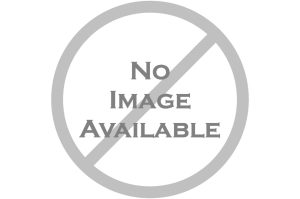
Yurii Lotman’s lectures collected in this book offer a fascinating discussion of late eighteenth- and early nineteenth-century Russian noble culture. The school of cultural semiotics, founded by Lotman, had a formative influence on me as a young student of Russian literature and provided a welcome alternative to the dogmatic approach of Soviet literary criticism.
Anthony Studer (Crop Sciences)
The Art of War by Sun Tzu and Samuel B. Griffith
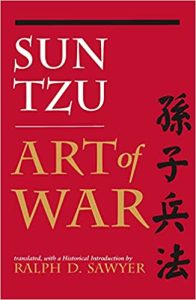
A favorite book of mine, and one I reread frequently, Sun Tzu’s The Art of War is a classic text that is both simple and profound. Although the title reveals the nature of the subject, it belies the extent to which the insights are broadly applicable to leadership, management, and human nature.
Hari Sundaram (Computer Science)
“Surely You’re Joking, Mr. Feynman!” Adventures of a Curious Character by Richard P. Reynman
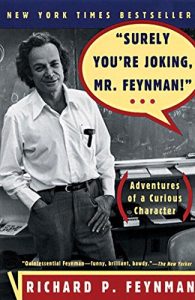
Reading Feynman’s stories as a teenager set the stage for my academic journey. Through his words, I caught a glimpse of what a life in science could be: a playful, joyful journey where curiosity and imagination reign.
Charee Thompson (Communication)
Qualitative Research Methods: Collecting Evidence, Crafting Analysis, Communicating Impact by Sarah J. Tracy
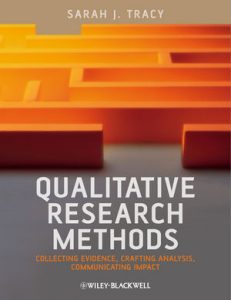
This is one of my favorite methods guides, and it is written by a long-time teacher and mentor of mine. The book provides a comprehensive and practical guide on how to conduct qualitative research that is accessible, relatable, and nuanced. Dr. Tracy, her work, and this book inspire me to do my best research.
Kelly Tu (Human Development and Family Studies)
The Dot by Peter H. Reynolds
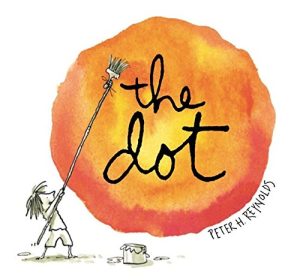
This story about how a young girl’s lack of self-confidence was significantly changed through the encouragement of her teacher serves as a powerful reminder of our impact on students. It inspires me to be an active source of encouragement for my students, as well as my children.
Arend van der Zande (Mechanical Science and Engineering)
The Kidpower Book for Caring Adults: Personal Safety, Self- Protection, Confidence, and Advocacy for Young People by Irene van der Zande
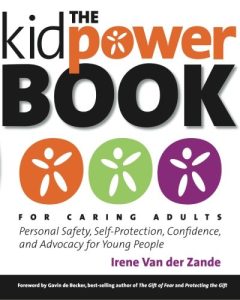
Kidpower, an international nonprofit founded by my mother, was an extra sibling in our house throughout my childhood. Filled with practical lessons for building safety skills in children and adults, this book is important reading for any parent or educator. The philosophy of hands-on learning has profoundly influenced my own teaching.
Maria Villamil (Crop Sciences)
Waking Up by Sam Harris
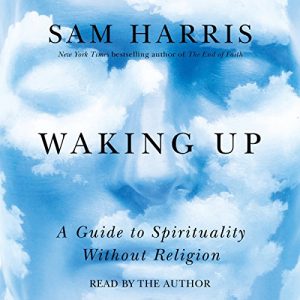
I found this book almost by accident after randomly selecting the meditation app from the same author at the beginning of the pandemic… this book has helped me find solace during these uncertain times and guided me to be more present in each moment. For that, I’m grateful.
Laura Wang (Accountancy)
Raising Good Humans by Hunter Clarke-Fields
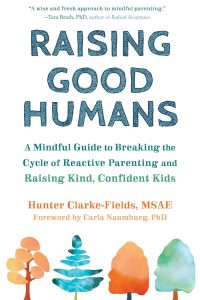
This book led to some tear-shedding self-discoveries and significantly improved my relationship with my 3-year-old who was born to challenge my patience every day. It made me realize that it is possible to balance work and family and be happy.
Sarah Wigley (Music)
Dynamics of the Singing Voice by Meribeth Bunch Dayme
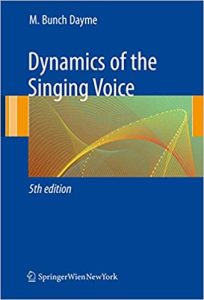
“Dynamics of the Singing Voice” brings the technical elements of singing together with the often overlooked mental and energetic aspects that come from the act of singing. This book is dear to me as the author was the first individual to open my mind to the possibilities of interplay between vocal science and metaphysics.
William Witola (Pathobiology)
Veterinary Parasitology by M.A. Taylor, R.L. Coop, and R.L. Wall
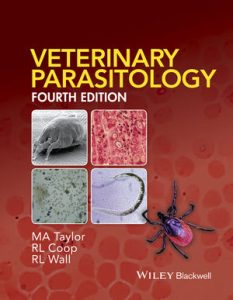
This book has shaped and fed my passion for studying parasites.
Xun Yan (Linguistics)
The Years That Matter Most: How College Makes or Breaks Us by Paul Tough
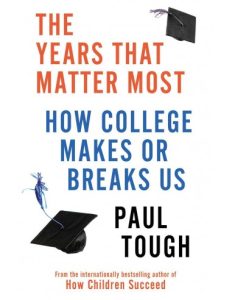
This book takes a critical lens to understanding selection and selectivity for college admissions in the US. The issues and stories covered in this book constantly remind me of the need to reflect upon the fundamental values that should be represented under higher education and educational assessment and evaluation.
Kai Zhang (Biochemistry)
Principles of Neurobiology by Liqun Luo
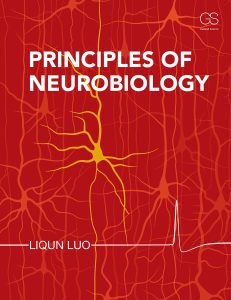
Few science textbooks show how discoveries are made. Principles of Neurobiology by Prof. Luo describes not only the discovery but the path to discovery. I feel excited to read this book from an inspiring scientist, diligent educator, and informal mentor who invited me from physical science to neurobiology.
